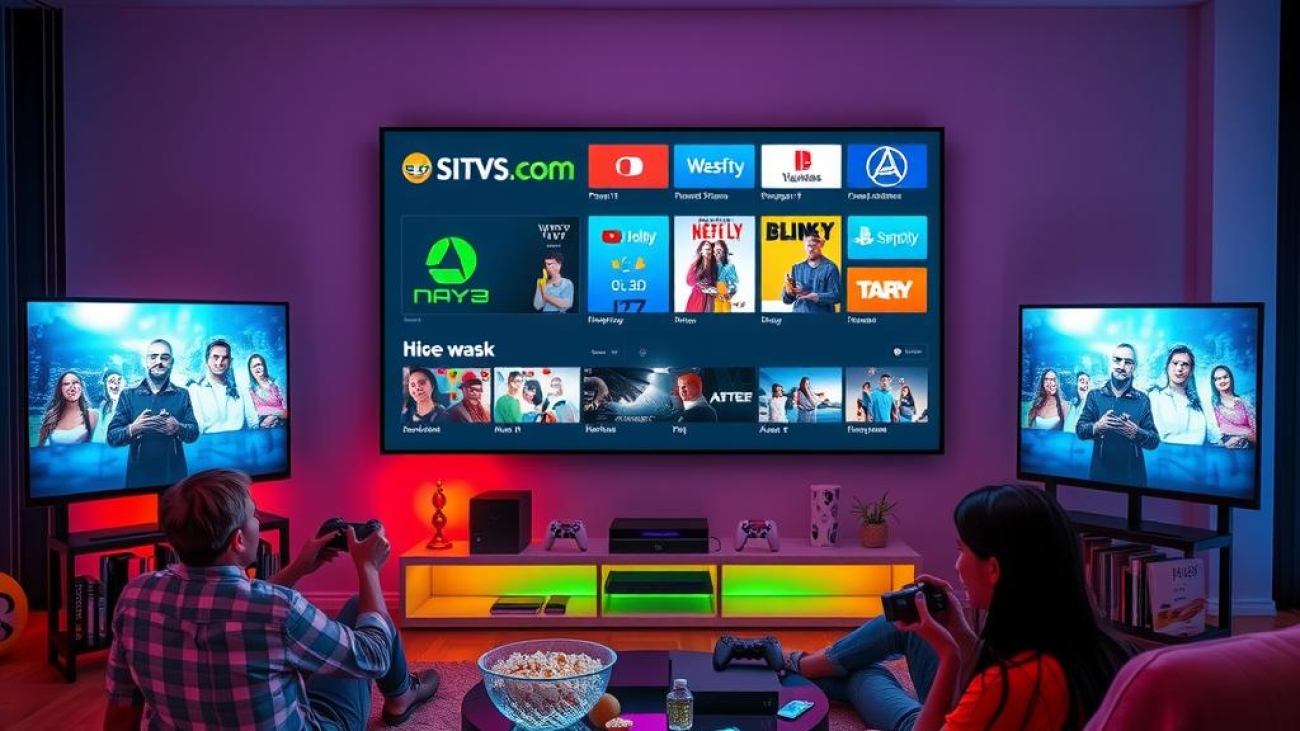In an era where video streaming platforms are inundated with a plethora of content, how can service providers ensure that users find exactly what they want to watch? The challenge lies in effectively navigating vast libraries while maximizing user engagement. This is where Hybrid Recommendation Systems come into play, offering a sophisticated approach to content discovery that combines various recommendation techniques. By leveraging the strengths of collaborative filtering and content-based methods, these systems provide personalized recommendations tailored to individual preferences.
The core value of implementing Hybrid Recommendation Systems in video streaming is evident: they enhance the viewer experience by delivering relevant suggestions based on complex data analysis and algorithm optimization. As audiences become more discerning about their content choices, the need for intelligent systems that adapt to changing tastes grows increasingly paramount. With effective utilization of hybrid models, platforms not only improve user satisfaction but also boost retention rates by keeping viewers engaged longer.
Imagine a scenario where a user logs into their favorite streaming service and is immediately greeted with a selection of shows and movies curated just for them—this level of personalization is made possible through Hybrid Recommendation Systems. By analyzing viewing history alongside real-time feedback from similar users, these systems craft unique playlists that resonate with individual tastes while introducing fresh options that may have otherwise gone unnoticed.
As we delve deeper into the mechanics behind creating robust Hybrid Recommendation Systems, this article will explore essential strategies for developing algorithms capable of balancing accuracy and novelty in recommendations. It will highlight best practices for data integration from multiple sources as well as illustrate how machine learning enhances predictive capabilities within video streaming environments.
By understanding the intricacies involved in designing these advanced recommendation frameworks, readers will gain insights into fostering better audience connections through targeted viewing experiences—ultimately transforming how users interact with digital media landscapes today.

Key Points:
-
Title of the key point: The Power of Personalization in Content Discovery
The evolution of Hybrid Recommendation Systems has significantly transformed how viewers engage with video streaming platforms. By blending collaborative filtering and content-based filtering, these systems create a personalized viewing experience that resonates with individual preferences. As users encounter an overwhelming array of choices, these tailored recommendations streamline content discovery, allowing them to navigate extensive libraries effortlessly. This approach not only alleviates decision fatigue but also ensures that each user feels understood and valued by the platform. -
Title of the key point: Real-Time Adaptability Enhancing User Experience
One standout feature of Hybrid Recommendation Systems is their ability to adapt in real time based on user interactions. Unlike traditional methods, which rely on static data points, hybrid models continuously analyze vast datasets encompassing diverse viewing habits and patterns. This dynamic algorithm optimization enables platforms to respond promptly to changing viewer preferences or emerging trends in content consumption. Consequently, users are more likely to encounter relevant titles aligned with their interests during every session, fostering a deeper connection between viewers and the platform. -
Title of the key point: Driving Subscriber Retention Through Engagement
In today’s highly competitive video streaming landscape, effective recommendation systems are integral for maintaining subscriber loyalty. Platforms leveraging advanced Hybrid Recommendation Systems not only enhance user engagement but also increase retention rates by consistently presenting appealing content options tailored to individual tastes. As subscribers enjoy seamless browsing experiences filled with personalized recommendations that align closely with their interests, they are more inclined to remain committed users rather than exploring rival services. Thus, investing in sophisticated recommendation frameworks becomes essential for platforms aiming for long-term success in this saturated market.

The Essence of Hybrid Recommendation Systems
Enhancing User Experience through Personalized Content Discovery
Hybrid Recommendation Systems are pivotal in the realm of video streaming and content discovery, combining various algorithms to deliver tailored suggestions that enhance user engagement. By integrating collaborative filtering and content-based methods, these systems leverage vast amounts of data to understand user preferences. This multifaceted approach not only increases the accuracy of personalized recommendations but also ensures diversity in suggested content, catering to a wider audience. For instance, when a viewer frequently watches romantic comedies, a Hybrid Recommendation System would analyze similar users’ behaviors alongside the characteristics of available films to recommend both popular titles and hidden gems within the same genre.
The effectiveness of Hybrid Recommendation Systems hinges on their ability to adapt and optimize through continuous data analysis. As viewers consume more content, these systems gather insights into viewing habits—such as time spent watching certain genres or ratings given—and use this information to refine future recommendations. In this context, algorithm optimization becomes essential; it allows for real-time adjustments based on shifting trends or emerging user preferences. Consequently, users often find themselves discovering new shows or movies that resonate with their tastes while simultaneously being exposed to diverse options they may not have considered otherwise.
Moreover, incorporating user feedback is crucial for enhancing these recommendation engines further. Feedback mechanisms enable users to rate recommendations actively or provide insights about their experience with suggested content. This iterative process improves the system’s understanding over time and fosters a sense of community among viewers who share similar interests. Such engagement can significantly impact retention rates within streaming platforms as people increasingly rely on Hybrid Recommendation Systems for personalized viewing experiences rather than browsing extensive catalogs without guidance.
In addition to improving individual satisfaction levels with targeted suggestions, hybrid approaches also allow providers greater control over how specific types of content are promoted across different demographics. For example, by utilizing demographic data along with behavioral analytics from previous interactions—like age groups interested in thrillers versus those drawn towards documentaries—content creators can tailor marketing strategies effectively using intelligent recommendation techniques inherent in Hybrid Recommendation Systems.
Ultimately, it’s evident that Hybrid Recommendation Systems play an integral role in shaping modern viewing habits by offering personalized pathways through expansive media libraries while keeping user engagement at the forefront—a dynamic synergy between technology and entertainment that continues evolving as viewer expectations rise.
The Art of Tailored User Experiences
Understanding the Role of Algorithm Optimization in Personalization
In the digital landscape, where user engagement is paramount, algorithm optimization emerges as a critical mechanism for enhancing accuracy and interaction. Sophisticated algorithms analyze vast amounts of data to adapt seamlessly to user interactions, thereby ensuring that recommendations resonate with individual preferences. At the heart of this process lies the concept of hybrid recommendation systems, which combine various methodologies—such as collaborative filtering and content-based filtering—to deliver more personalized recommendations. By leveraging advanced data analysis techniques, these systems can discern patterns in user behavior and interests, crafting a unique experience for each individual.
For instance, while engaging with video streaming platforms, users often encounter tailored suggestions based on their viewing history. This adaptability not only improves content discovery but also enhances overall satisfaction by making it easier for viewers to find what they truly enjoy. As users continue to interact with these platforms—liking or disliking certain genres—the algorithms refine their predictions further through continuous learning processes. This iterative cycle ensures that even subtle shifts in preferences are captured promptly.
Moreover, effectiveness hinges on how well these recommendation systems balance exploration and exploitation; while it is essential to suggest familiar content that aligns closely with past behaviors (exploitation), introducing novel options can maintain engagement levels high (exploration). Striking this equilibrium becomes crucial in preventing stagnation—a common pitfall when too much emphasis is placed on historical behaviors without considering emerging trends or new interests.
The intricate relationship between algorithm optimization and user engagement highlights an evolving realm where technology meets personal preference at its core. As consumers become increasingly discerning about their digital experiences, businesses must prioritize sophisticated solutions like hybrid recommendation systems to stay relevant. By continually fine-tuning algorithms based on real-time feedback loops from users’ interactions—such as clicks, views, shares—and employing robust data analytics frameworks companies can ensure sustained relevance in the crowded market space.
Ultimately, optimizing algorithms for enhanced accuracy does not solely serve commercial purposes; it fosters meaningful connections between users and content providers by aligning offerings closely with individual tastes. Thus, through effective implementation of such strategies within hybrid recommendation frameworks—not just limited to video streaming but applicable across diverse domains—organizations stand poised to elevate both customer satisfaction and loyalty significantly over time.
Future Innovations in Content Discovery
A New Era of Personalized Engagement
As streaming platforms continue to evolve, the implementation of Hybrid Recommendation Systems stands out as a pivotal advancement in content discovery. These systems combine collaborative filtering, which leverages user behavior and preferences, with content-based analysis that evaluates the attributes of individual videos. This dual approach not only enhances the accuracy of personalized recommendations but also fosters greater user engagement by presenting viewers with an array of options that resonate on multiple levels—both through shared interests and unique tastes. By refining algorithms through sophisticated data analysis techniques, platforms can better understand viewer habits and preferences over time, thereby curating a more individualized viewing experience.
Enhancing Viewer Satisfaction
The Impact on User Experience
The implications for viewer satisfaction are profound; as Hybrid Recommendation Systems optimize their suggestions based on real-time data feedback loops, users are less likely to encounter irrelevant or repetitive content. Instead, they find themselves immersed in a tailored selection that reflects both trending materials favored by similar audiences and niche offerings aligned with their distinct viewing history. Such advancements not only enhance enjoyment but also encourage longer viewing sessions—an essential factor for platform competitiveness in today’s saturated market. Streaming services that invest in these hybrid models position themselves favorably against competitors who rely solely on traditional recommendation methods.
Competitive Advantage Through Innovation
Standing Out Among Streaming Giants
In an industry where subscriber retention is paramount, implementing advanced Hybrid Recommendation Systems can provide significant leverage over rivals. Platforms equipped with sophisticated analytics capabilities can rapidly adapt to shifting viewer preferences and cultural trends while leveraging vast datasets across global markets. This adaptability allows them to launch timely marketing campaigns highlighting specific genres or titles predicted to resonate strongly within particular demographics based on predictive modeling outcomes from their recommendation systems. Thus, innovation becomes synonymous with competitive advantage—streaming services must continuously refine their approaches if they wish to capture audience attention amid increasing competition from new entrants.
Looking Ahead: The Future Landscape
Embracing Emerging Technologies
Looking ahead at future innovations in content discovery reveals exciting possibilities shaped by emerging technologies such as artificial intelligence (AI) and machine learning (ML). As these technologies become increasingly integrated into Hybrid Recommendation Systems, streaming platforms will develop even greater capabilities for understanding intricate user behaviors beyond simple view counts or ratings alone. Predictive algorithms may analyze mood indicators via social media sentiments alongside traditional metrics like watch time or completion rates—all aimed at creating a richer tapestry of insights driving personalized recommendations forward into uncharted territories previously deemed unattainable within conventional frameworks.
A Transformative Journey Ahead
Charting New Paths in Viewer Engagement
As this transformative journey unfolds within video streaming ecosystems worldwide driven by innovative uses of Hybrid Recommendation Systems, it will redefine how audiences discover content—and ultimately how they engage with it long-term—ensuring sustained relevance amidst constant technological evolution.
Innovative Hybrid Recommendation Systems Revolutionizing Video Streaming Experiences
In the age of content overload, where viewers are often left sifting through endless options, Hybrid Recommendation Systems emerge as a pivotal solution for video streaming platforms. These systems amalgamate various data-driven techniques to curate personalized recommendations that resonate with individual viewer preferences. By harnessing the strengths of collaborative filtering, content-based filtering, and advanced machine learning algorithms, hybrid recommendation frameworks significantly enhance recommendation accuracy while fostering deeper connections between users and their chosen platforms.
The effectiveness of Hybrid Recommendation Systems is particularly evident when evaluating their proficiency in analyzing expansive user data while accommodating diverse viewing habits. As viewers navigate through extensive libraries teeming with titles, these systems implement sophisticated algorithms that dynamically adapt based on real-time user interactions. The outcome is a seamless discovery process where finding new favorites becomes an intuitive experience rather than a daunting task. Enhanced by algorithm optimization strategies intrinsic to recommendation systems, hybrid approaches provide both precision and depth in predicting what will likely engage unique viewers.
As competition intensifies within the video streaming landscape, leveraging effective recommendation systems has transitioned from being an advantageous feature to an essential component for survival. Platforms employing these hybrid models are better positioned to retain subscribers through sustained engagement via relevant content offerings. Understanding how these systems operate not only underscores their significance but also opens up possibilities for further innovation aimed at elevating viewer satisfaction across various services.
FAQ:
Q: How do Hybrid Recommendation Systems improve user engagement on video streaming platforms?
A: Hybrid Recommendation Systems enhance user engagement by providing personalized recommendations tailored to individual preferences using advanced data analysis techniques that consider diverse viewing habits and real-time interactions.
Q: What makes Hybrid Recommendation Systems more effective than traditional methods?
A: Unlike traditional methods that rely solely on one approach (either collaborative or content-based), Hybrid Recommendation Systems combine multiple techniques, leading to improved accuracy in predictions and a more intuitive content discovery experience for users.
Q: Why are recommendation systems critical for the success of video streaming services?
A: In today’s competitive market, recommendation systems help keep subscribers engaged by consistently delivering relevant content tailored to user interests; this level of personalization is crucial for retaining audiences amidst vast choices available online.
